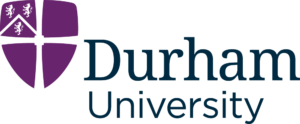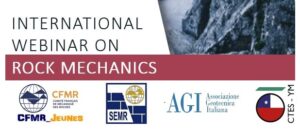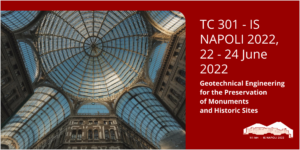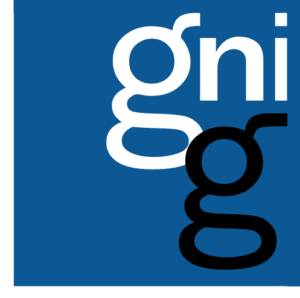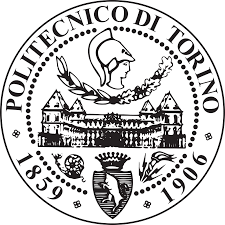Assistant Professor in Offshore Geotechnics (Durham University, UK)
The Department of Engineering at Durham University (UK) is currently undergoing a period of strategic growth and is looking to fill nine new academic posts across a range of specialisations at various academic levels. We welcome applications from outstanding individuals with research and teaching interests in the following area:
Offshore Geotechnics – Assistant Professor grade 7/8
Durham University has demonstrated genuine international research leadership in the areas of geotechnical research and computational mechanics. The Department of Engineering is well equipped with cutting-edge testing facilities for geo-mechanics research, which offers researchers unique opportunities. The Geotechnical Laboratory has advanced element test apparatus for characterisation of cyclic behaviour of soils. Durham University has several High Performance Computing resources, including Hamilton Linux clusters, with about 4800 CPU cores.
Applicants must demonstrate research excellence in the field of offshore geotechnics, with the ability to teach our students to an exceptional standard in a range of topics and to fully engage in the services, citizenship and values of the University. The University provides a working and teaching environment which is inclusive and welcoming and where everyone is treated fairly with dignity and respect. Candidates will be expected to demonstrate these key principles as part of the assessment process.
Start Date: ideally 1 October 2021
12th ALERT Olek Zienkiewicz course – 18-20 May 2021 (+ 13 & 20 April), online
The 12th ALERT Olek Zienkiewicz course 2021: “Looking into the rhizosphere: the interface between plant science and soil mechanics” will be held online on 18-20 May 2021. It is organised in five sessions. The course will be preceded by preparatory lectures organised in four sessions over two days, 13 and 20 April 2021.
The course is organised by the Alliance of Laboratories in Europe for Education, Research and Technology (ALERT), the University of Strathclyde (Department of Civil and Environmental Engineering), Universitat Politècnica de Catalunya (Department of Geotechnical Engineering & Geosciences), CIMNE (Geomechanics Group) and TERRE Network.
The course is coordinated by Alessandro Tarantino (University of Strathclyde) and Enrique Romero (Universitat Politècnica de Catalunya).
The course is free of charge for participants affiliated to institutions member of ALERT Geomaterials. The web platform to register is not yet opened but registrations can already be made by email (see attachment).
More information in the attachment: OZC2021_Programme-v10
International Webinar on Rock Mechanics – March-April 2021
Some Young Members of different ISRM National Groups (France, Italy, Paraguay, and Spain) are organizing a series of international webinars on rock mechanics, with the aim of involving young researchers in different educational activities. They are contacting other ISRM National Groups to involve more countries in this initiative.
A tentative program has been created, and some online lectures have already been scheduled for the upcoming months. The flyer of the first programmed webinar, which is organized by the Young Members’ Group (Groupe de travail CFMR-Jeunes) of the ISRM French National Group is attached here.
The first session will take place on 11 March and you can register for free. It will include two contributions:
– Thermo-hydro-mechanical behavior of clay-rock in deep radioactive waste repositories
Philipp Braun (Ecole des Ponts ParisTech)
– Site investigation and design of protective structures in an unstable area in the city of Majukavo-Mayotte-France
Mohammed Annakib (Université de Rennes)
Upcoming dates:
01 April 2021
Relating physical and mechanical properties to temperature induced damage in carbonate rocks
Federico Vagnon (Università di Torino)
link al modulo di iscrizione
22 April 2021
The influence of sample geometry and testing conditions on mode I fracture toughness of rock
Andrea Muñoz-Ibáñez (Universidade da Coruña)
Attachment: International_Webinar_on_Rock_Mechanics_session_01
Third international symposium on Geotechnical Engineering for the Preservation of Monuments and Historic Sites – Napoli 22-24 giugno 2022 – Call for papers
Il 3rd International Symposium on Geotechnical Engineering for the Preservation of Monuments and Historic Sites, organizzato dall’AGI e dal TC 301 dell’ISSMGE, si terrà a Napoli, dal 22 al 24 giugno 2022.
L’evento si rivolge non solo agli ingegneri geotecnici ma anche agli specialisti di tutte le discipline coinvolte nella salvaguardia e nella conservazione dei monumenti e dei siti storici. Le tematiche che il convegno si propone di affrontare sono descritte nella locandina allegata, e spaziano dai principi generali della conservazione dei monumenti, alle indagini e al monitoraggio di casi esemplari, agli effetti dello sviluppo urbano e degli eventi naturali sul patrimonio costruito, alle tecniche di mitigazione del rischio.
Il convegno inoltre ospiterà la terza Kerisel Lecture, dedicata dalla ISSMGE al pioniere dell’applicazione dell’ingegneria geotecnica alla conservazione dei monumenti.
La call for papers è aperta e i sommari vanno sottoposti attraverso il sito del convegno, sul quale saranno rese disponibili tutte le ulteriori informazioni.
Locandina: TC-301-IS-NAPLES-2022-First-bulletin
Sito web del convegno: https://tc301-napoli.org/
Researcher position at the Gustave Eiffel University (Nantes campus, France)
One position of “Researcher in Geotechnical Engineering: physical and numerical modelling” is available at the Gustave Eiffel University, Nantes campus, France.
The application is open until the 19th March 2021 (https://www.concours.developpement-durable.gouv.fr/charge-e-de-recherche-du-developpement-durable-de-a126.html).
More information in the attached file: position_Gustave_Eiffel_University
Post doctoral position at INERIS (Verneuil-en-Halatte, France)
Ineris proposes a post-doctoral position on the understanding and modelling of THMC processes in deep geothermal systems.
The postdoctoral position is offered in the Natural Hazards, Underground structures and storages unit within the Site and Territory Division. The unit activity covers all aspects of risks prevention related to the exploitation and post-exploitation of ground and underground including underground excavations, abandoned mines, salt caverns, deep boreholes, gas underground storage, geothermal systems and rock slopes. The core expertise of the unit is numerical modelling of thermo-hydromechanical and chemical (THMC) coupled processes in geomechanics.
This post-doctoral is expected to begin on 15th March 2021 for 6 months. The application should be submitted in French or in English. It must include a resume (including a list of publications and the names and positions of your former research advisers) and a cover letter. —> Mail to: zady.ouraga@ineris.fr
Scuola di Dottorato invernale – 1-3 marzo 2021
La Scuola di Dottorato invernale 2021 sul tema “Comportamento idromeccanico delle argille naturali e compattate alla scala micro e macro: analisi sperimentale e modellazione numerica”, organizzata dalla Giunta GNIG, inizia il prossimo lunedì, su piattaforma on-line.
Allegato: Locandina Scuola di Dottorato Invernale 2021
Per ulteriori informazioni, è possibile contattare gli organizzatori all’indirizzo gnig@gnig.it
Corso di III livello Geostrutture e geosistemi energetici – Politecnico di Torino, dal 24 febbraio 2021
Vi segnaliamo il corso di III livello “Geostrutture e geosistemi energetici” previsto per la Scuola di dottorato del Politecnico di Torino. Le lezioni sono tenute da: Marco Barla, Matteo Baralis, Gabriele Della Vecchia, Alessandra Insana, Fleur Loveridge e Guido Musso.
La prima lezione si terrà il 24 febbraio prossimo alle ore 10. Tutto il corso verrà erogato mediante la piattaforma BBB – virtual classroom.
Per informazioni o richieste specifiche: marco.barla@polito.it
Allegato: Programma
Four post-doc and five PhD positions at the Hong Kong University of Science and Technology
Four post-doc and five PhD positions in soil-structure interaction for tree stability: “Engineering a safer urban forest under extreme storms”
The Department of Civil and Environmental Engineering of the Hong Kong University of Science and Technology (HKUTS) is actively recruiting multiple post-doc and PhD positions for studying tree stability problems using geotechnical and structural engineering principles and research methods. We are looking for candidates who are interested in:
(1) Field testing of tree biomechanics and root anchorage;
(2) Centrifuge modelling of soil-root interaction;
(3) Numerical modelling of soil-root interaction;
(4) Wind tunnel modelling of wind-tree-soil-root interaction; and
(5) Analytical tree dynamic modelling for reliability-based analysis.
Different positions require different skill sets; please see attached detailed job advert. For more information: JobAdvert-PhD and JobAdvert-PostDoc
Application: Interested candidates are invited to send (i) a motivation letter (< 2 pages); (ii) a CV with a full list of publication; (iii) proof of English proficiency (valid IELTS/TOFEL certificates); (iv) names of 2 references; (v) copies of bachelor, master degrees or/and PhD degrees and transcripts; and (vi) abstract of master dissertation (if any) to the project coordinator, Dr Anthony Leung (ceanthony@ust.hk).
Shortlisted applicants will be interviewed (remotely) by project members. Review of applications will begin immediately and continue until the positions are filled. Starting date is September 2021.
Contact: For more information about these positions, please contact the project coordinator: Dr Anthony Leung (ceanthony@ust.hk)
Two Postdoctoral Positions in Computational Geomechanics at the Hong Kong Polytechnic University
The Department of Civil and Environmental Engineering of the Hong Kong Polytechnic University invites applications for two postdoctoral positions in Computational Geomechanics. The positions offer the possibility of working on multiscale multiphysics modelling of fluid-structure-soil interaction in offshore geotechnics. Applicants must have a Ph.D. degree in Geotechnical Engineering, Computational Mechanics or other relevant disciplines and have the ability to build an independent, externally funded research program at the forefront of their field. Programming experience in C++/Fortran/etc. and numerical modelling experience using FEM/DEM/CFD code(s) are required. The positions are expected to get started as early as possible. Contract duration: 1~2 years (extensions are possible based on the performance of research achievements).
Closing date for applications: You may apply for this position until March 14, 2021 by email to the contacts given below. Interviews of shortlisted candidates will be scheduled with early close of application depending on the number of candidates received.
Contacts: Please submit an up-to-date curriculum vitae C.V. and a letter stating your motivation to apply and your key relevant qualities to Dr Yin-Fu JIN (yinfu.jin@polyu.edu.hk) and Dr. Jie YANG (doc.jie.yang@gmail.com). Information of the research group can be found via: http://geoinvention.com/.
